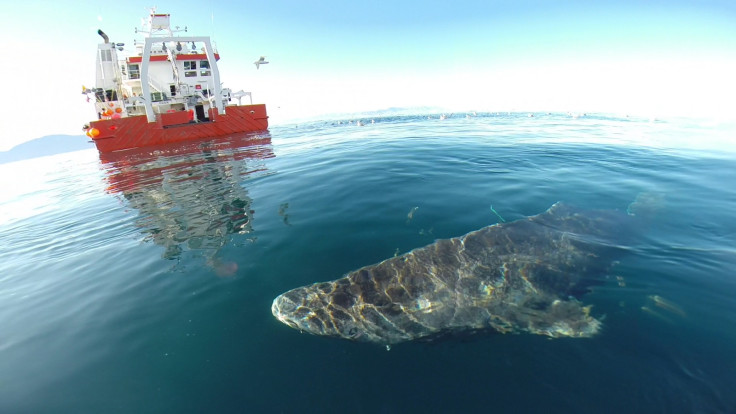Ancient half-blind Greenland shark found in Caribbean, miles away from Arctic
The Greenland sharks are half-blind due to the many numbers of parasites in their eyes.
A half-blind Greenland shark, which is normally found in icy Arctic waters, was spotted swimming in the warm waters of the Caribbean recently.
The shark was spotted swimming off the coast of Belize by a team of researchers from Florida International University (FIU).
According to a statement from FIU, this is the first time that a Greenland shark has been spotted in the Caribbean. Devanshi Kasana, a PhD student at FIU, was the one who noticed that the fish they had captured was actually a Greenland shark.
Kasana was on an assignment along with Belizean fishermen to tag tiger sharks when she noticed that one of the fish was not a tiger shark. She took pictures and sent the images of the "sluggish creature" to her adviser, who confirmed that it was either a Greenland shark or a hybrid between the Greenland shark and the Pacific sleeper shark, per CNN.
We had quite the 𝕕𝕚𝕤𝕔𝕠𝕧𝕖𝕣𝕪 about a 𝕤𝕙𝕒𝕣𝕜 this 𝕨𝕖𝕖𝕜:
— Mote Marine Laboratory & Aquarium (@MoteMarineLab) July 26, 2022
While on a shark tagging trip in Belize, the team reeled in a Greenland shark. What was an Arctic species doing in Belize?
Read more: https://t.co/JVvzhNRngf@FIUCASE @peclabfiu @TheEllenFund pic.twitter.com/FuJP6jySOO
"At first, I was sure it was something else, like a six-gill shark that are well known from deep waters off coral reefs," said Kasana.
"I knew it was something unusual and so did the fishers, who hadn't ever seen anything quite like it in all their combined years of fishing," she added, expressing shock at her discovery.
The fishermen onboard the boat were equally surprised. "I am always excited to set my deep-water line because I know there is stuff down there that we haven't seen yet in Belize, but I never thought I would be catching a Greenland shark," said Omar Faux, one of the Belize fishermen.
Greenland sharks are the world's longest-living vertebrates. They can live up to 400 years, according to a 2016 study. The fish can grow up to 23 feet long and weigh up to 1.5 tonnes.
According to the National Oceanic and Atmospheric Administration, these sharks grow at a very, very slow speed, just one-third of an inch per year. They are known to dive as deep as 2,200 meters. The Greenland sharks are half-blind due to the many numbers of parasites that make their home in the eyes of these creatures.
These sharks prefer extremely cold, deep waters, which makes it difficult for scientists to track them. This is the only shark species that can withstand the cold waters of the Arctic Ocean year-round. FIU researchers believe that there could be more such sharks in the Caribbean waters.






















